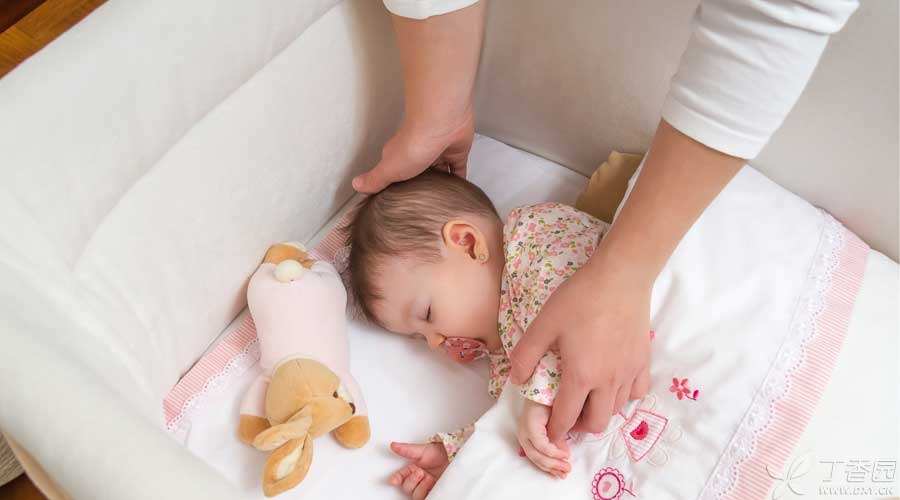
Being a new parent is a very fresh and special experience. During this period, the novice parents have a little life to take care of, and they also try to understand the baby and learn how to meet the needs of the baby.
However, there are still some challenges in the process. For example, when the novice parents feel exhausted at night, the baby will wake up frequently and need feeding and care.
Why does the baby wake up at night to eat milk?
In the weeks or even months after birth, the baby is growing rapidly, but his stomach volume is very small, and he needs to drink milk every few hours to meet the needs of growth.
Therefore, nursing at night is very common and very important to the baby’s development.
How to get along with the baby in the bedroom?
1. Create an environment suitable for rest
Mom and Dad can take some measures to make the room more comfortable, such as controlling the room temperature and humidity within the appropriate range and keeping the room dark.
2. Let the baby sleep in the crib next to his parents.
It is safest for the baby to sleep alone in the crib next to his parents. Because this way, parents can pay attention to the baby at any time, and can respond to his needs when the baby feels uncomfortable, and can easily take care of the baby without getting up.
3. Avoid over-stimulation of the baby
Because the baby is too young to sleep as soundly as an adult, it is not necessary to nurse the baby every time he wakes up. Parents can try to talk to him in a soft tone and appease him first. In addition, unless it is especially necessary, it is generally not recommended to change diapers or clothes for the baby at night.
How to feed at night?
If the baby has the following three manifestations, it means that the baby is likely to need feeding:
-
Sucking a finger;
-
To be restless;
-
Make a whispering sound.
Breastfeeding:
At night, many mothers will lie in bed to feed their babies, but they must pay attention to their posture and do not fall asleep during feeding, otherwise the babies will easily suffocate.
Dr. Clove suggested that everyone should first learn the correct breast-feeding posture, stay awake as much as possible, and sit up to nurse. Click here to read the correct breast-feeding posture.
Bottle feeding:
In order to avoid confusion during night-time bottle feeding, parents should make plans in advance. For example, disinfect and clean bottles and pacifiers in advance, measure the required milk powder, prepare boiled water, etc.
In addition, the formula milk powder is not sterile, so the formula milk brewed in advance may brew pathogenic bacteria, causing the baby to be infected. Therefore, the milk powder should be brewed at night when the baby needs milk, or the liquid formula should be used to feed the baby.
How to carry out bottle feeding safely? Click here to view 12 things you must know about bottle use.
Note:
- Never in order to let the baby sleep longer, And forced him to drink more milk than he needed. Doing so may cause colic, It may also cause the baby to become overweight and affect the baby’s health. Sometimes the baby is still agitated after drinking milk. At this time, the father or mother can make intimate contact with the baby’s skin and shake it gently, which can make him feel comfortable and quiet.
Dad can do this:
-
Make sure your mother feels comfortable when breastfeeding.
-
Prepare the things your mother needs so that she doesn’t have to take them herself.
-
Make sure your mother has water and snacks at hand, because nursing may make your mother feel thirsty and hungry.

Situations requiring special care
In order to ensure the safety of the baby at night, parents need to confirm the following matters:
-
Let the baby sleep on his back, not on his stomach or side.
-
Let the baby sleep alone in the crib and let the crib be next to the parents’ bed.
-
The baby’s mattress should be flat and strong, and do not use mattresses made of soft materials.
-
Don’t wear too much or cover too thick for your baby (don’t wear or cover more than your parents);
-
The quilt or blanket must not completely cover the baby’s head to prevent the baby from suffocating.
-
Ensure the indoor temperature is appropriate, air circulation, quiet and not noisy;
-
Never smoke in the room where the baby sleeps.
-
Don’t sleep with your baby when your parents drink alcohol or take drugs that may cause drowsiness.
-
Parents should stay awake and not doze off when putting their baby on the sofa or chair.
Responsible Editor: BruceLi
